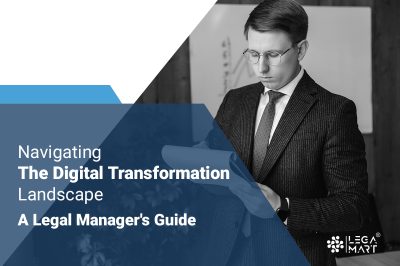Did you ever know that your driving offences can seriously affect your day-to-day life?
Let’s understand this through the 2 cases of Nettleship v. Weston, and Cook v. Cook case;
Nettleship v. Weston

Mr. Nettleship was the plaintiff (instructor), and Mrs. Weston was the defendant (learner driver) in this case which dates back to 1971. The judgment was issued by the English Court of Appeal in regard to the breach of duty in negligence claims.
Mr. Nettleship agreed for Mrs. Weston to drive her husband’s car after checking with the insurance company. According to Bali, Mrs. Weston had an accident that caused Mr. Nettleship to be injured. As it was described in the case.
“The car made a smooth start. She turned the steering wheel to the left, and the car moved around the corner slowly. He said to her: ‘” Now straighten out. But she did not do so. She panicked. She held the steering wheel, as he said, “in a vice-like gripe”: or, as she said: “my hands seemed to freeze on the wheel.”
He immediately took hold of the hand brake with his right hand and tried to get hold of the steering wheel with his left hand to straighten it out. He nearly succeeded. But by this time, the nearside of the car had mounted the curb. As bad luck would have it, there was a lamp standard just by the curb. The nearside struck the lamp standard. Mr. Nettleship was injured. His left knee cap was broken.”
A few months after this accident, Mrs. Weston was charged a fine due to a lack of care and attention in driving. Mr. Nettleship claimed damages for negligence against Mrs. Weston. She denied negligence and alleged contributory negligence and pleaded that he was well aware and consented to run the risk of injury. Weston even argued that Nettleship was well aware of her learner driver status and should have expected a high risk and not demanded such a level of care.
The judge dismissed the claims, and as Weston was covered by insurance, it was the judge’s duty to implement some reimbursement for the time Nettleship wasn’t able to work. Since both learner (Weston) and instructor (Nettleship) were responsible for the accident, a 50% damage reduction was put in place because of contributory negligence.
According to one of the judges on the case, Lord Justice Salmon, “Any driver normally owes the same duty to a passenger in his car as he does to the general public, namely to drive with reasonable care and skill in all the relevant circumstances. As a rule, the driver’s personal idiosyncrasy is not a relevant circumstance”.
Cook v. Cook

Another leading case was Cook v. Cook of 1986, which highlighted that inexperienced and unqualified drivers have a reduced standard of care towards their supervisors compared to a qualified drivers. It was therefore highlighted that while the learner has an advanced level of responsibility towards all other road users, it is not possible for the supervisor to be afforded the same protection on the matter. The term used to describe this was that a driver is expected to show no more than “ordinary caution expected of an inexperienced driver” towards their respective supervisor drivers.
The case was eventually overturned in 2008 through the judgment of Imbree v. McNeilly, wherein it was highlighted that even inexperienced and unqualified drivers have the same standard of reasonable care as is expected from a qualified and experienced driver. The justification for this reasoning is that a person who kindly accepts to train a learner driver is not willingly subjecting themselves to prejudicial treatment (same as other road users). Therefore, all victims should be receiving equal compensation for the learner driver’s fault.
What Are the Legal Implications?
A tort is interrelated with other fields of law. In terms of driving offences, the term negligence is used to imply “a tort consisting of the breach of a duty of care resulting in damage to the claimant”. It is always necessary to consider an objective standard when dealing with a negligence case.
Michael Allen states in the Textbook on Criminal Law, “Standard is an objective standard, impersonal and universal, fixed concerning the safety of other highway users. It is not related to the degree of proficiency or degree of experience attained by the individual driver.” During the case ruling, judges considered two similar cases, Richley v. Farrell (1965) and Watson v. Whitney (1966), alongside maintaining objectiveness and having standards in negligence court.
According to the law firm that assisted many with cases of careless driving, Moore Motoring Law, “Careless driving occurs when a person’s standard of driving falls below the standard of driving expected of a competent and careful driver, so there is a qualitative distinction between the two offences with careless driving being less serious than dangerous driving. Many motoring offences can lead to disqualification”. In negligence claims, it should always be considered if there is a legal duty, if a breach is put in place in regard to the duty, and if the breach causes damages.
While the legal proceedings take place, there are other options that you can pursue to get the required compensation. The most common is your health insurance, which can cover your medical bills. In some situations, auto insurance can also cover pedestrian accidents up to their policy limits.
Can a Learner Driver Get Fined?

Of course, the answer to this question depends on where you are and which jurisdiction you are in.
But for instance, as a learner driver in the UK, you are not exempt from receiving any type of penalty points, fines, or even having your license revoked.
While there might be other effects in place, liability is the most significant factor upon which your final compensation is dependent. In case it is proved in a court of law that you had complete liability over the accident, it is less likely for a stronger case to be made on your side. However, partial liability also attracts some compensation in your favor.
Therefore, the blame game between the supervisor and the driver, and the proofs supporting your statements, are capable of switching the case between the parties.
Safe Driving Lessons: A Priority
While laws are always there to help you with the outcome and compensations, it becomes important to be well aware of the consequences of your actions and to avoid rather than regret them. Here are some pointers that might help you in staying alert on the driveway:
- Leading by example: Children tend to follow their parents’ footpaths. Hence, it is the duty of the parents to ensure a standard of driving and set a good example.
- Take care of your stress first: While driving, it is important to be alert on the road and to maintain a safe distance between the frontal vehicles, along with following all the traffic rules. This requires the mind to be highly functional and not to be disturbed by other factors.
- Avoid overspeeding: Speed limits exist for a reason, which is to ensure your safety. Therefore, it is essential to maintain your speed at all times and avoid getting caught in dangerous accidents.
- Maintain your vehicle: Your vehicle requires proper care and maintenance over time. Therefore, ensure that the vehicle is provided with its share of care, and the vehicle shall ensure to care for you in return.
In Conclusion
To sum up, tort law and, specifically, negligence do not necessarily imply being at fault. The logic here is not solely legal. However, these issues are relevant to policy and real life. To better comprehend this topic, let’s consider a simple scenario. Consider a person injured by a motor car. It does not seem fair for the person to solely tolerate the damage but should be compensated by insurance. So next time you hop into your car, consider tort consequences alongside your driving patterns and behaviours.





